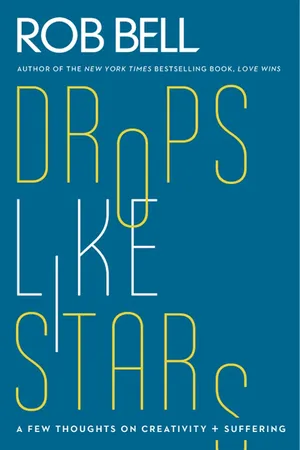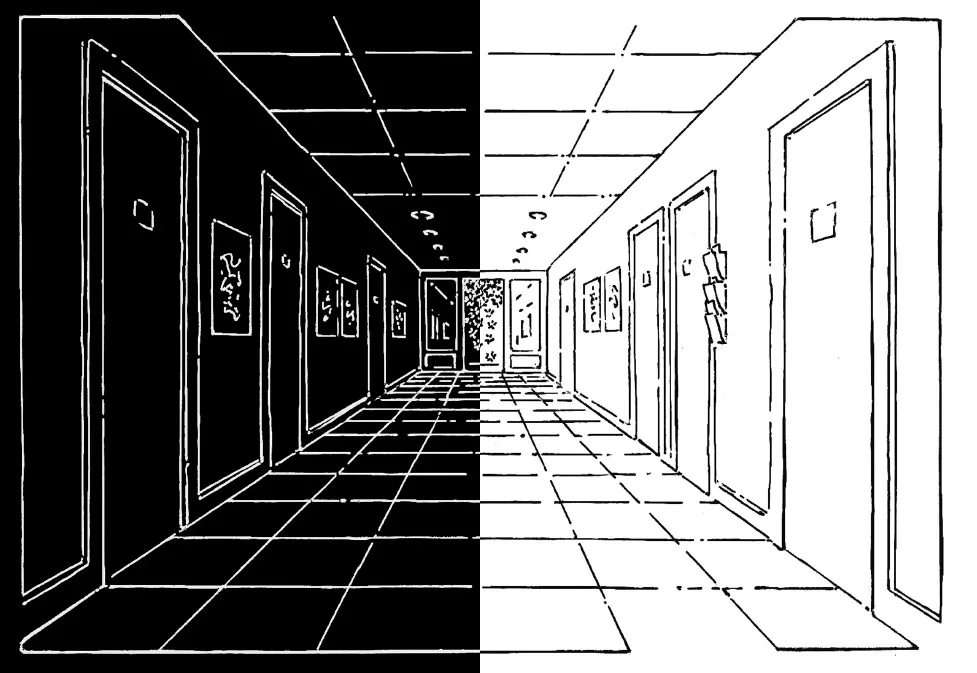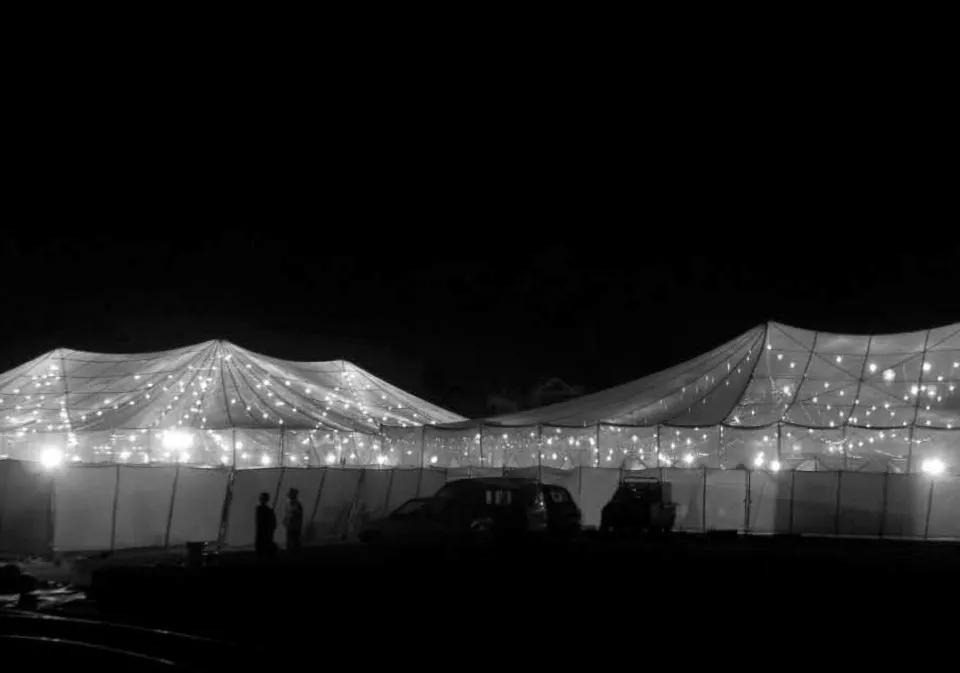
This is a test
- 144 pages
- English
- ePUB (mobile friendly)
- Available on iOS & Android
eBook - ePub
Book details
Book preview
Table of contents
Citations
About This Book
In Drops Like Stars, the New York Times bestselling author of Love Wins explores the complex relationship between suffering and creativity. Rob Bell ("One of the country's most influential evangelical pastors" — New York Times ) suggests that art can be found in the agony of our lives. Fans of the thought-provoking works of Donald Miller, N.T. Wright, Brian McLaren, and Timothy Keller will find true enlightenment in this thoughtful and engaging book from this vibrant, progressive voice for a new generation of Christians, the prolific pastor whom Time Magazine named one of the most influential people of 2011.
Frequently asked questions
At the moment all of our mobile-responsive ePub books are available to download via the app. Most of our PDFs are also available to download and we're working on making the final remaining ones downloadable now. Learn more here.
Both plans give you full access to the library and all of Perlego’s features. The only differences are the price and subscription period: With the annual plan you’ll save around 30% compared to 12 months on the monthly plan.
We are an online textbook subscription service, where you can get access to an entire online library for less than the price of a single book per month. With over 1 million books across 1000+ topics, we’ve got you covered! Learn more here.
Look out for the read-aloud symbol on your next book to see if you can listen to it. The read-aloud tool reads text aloud for you, highlighting the text as it is being read. You can pause it, speed it up and slow it down. Learn more here.
Yes, you can access Drops Like Stars by Rob Bell,Don Golden in PDF and/or ePUB format, as well as other popular books in Théologie et religion & Psychologie de la religion. We have over one million books available in our catalogue for you to explore.
Information
Subtopic
Psychologie de la religionCHAPTER 1
The Art of Disruption
The Art of Disruption
I know a man who has two sons.
Both of his sons are married, and both their wives became pregnant in the same year. Out of the two pregnancies,
one ended in a miscarriage,
the other in a healthy baby boy.
And so twice in that year this man I know went to the same hospital, walked down the same hallways with his same family members—the first time to grieve and mourn, the second time to rejoice and celebrate.
We live in the hallways, don’t we?

In the hallways.
We’ve left one room and gone to the other. We’ve sat outside, waiting. We’ve felt that kind of pain and been overwhelmed by that kind of joy.
We’ve all been in the hallways in one way or another, haven’t we?
Maybe not in the same family,
in the same hospital,
in the same hallways,
but this man with two sons—
we know his story,
because his story is our story.
Jesus told a story about a man who had two sons. The story begins with the younger son asking for his share of the inheritance, which in first-century Jewish culture was a deeply offensive request, the equivalent of saying,
“Dad, I wish you were dead.”
What an odd way to begin a story.
What’s even more unusual is that the father grants his request. The son leaves with the money and eventually spends it all. In his humiliation and poverty, the son decides to head home, where he hopes to get work as one of his father’s servants.
But when he arrives home, he isn’t shunned or punished or treated as a servant. His father rushes out to welcome and embrace him and then throws a party for him. Normally, on an occasion like this, a lamb would be sacrificed for the meal, which would be enough for a family.
But the father in this story has a calf prepared, which would be enough for the whole village.
Apparently, the consequences of the son’s departure were so destructive that he needed to be reconciled to the whole community.
This celebration infuriates the older brother. He refuses to join the party and instead argues the injustice of it all to their father, who responds,
“My son, you are always with me, and everything I have is yours. But we had to celebrate and be glad, because this brother of yours was dead and is alive again; he was lost and is found.”
The older brother then has a moment of profound enlightenment. He puts his arm around his father and says, “You’re right, Dad. I’m sorry I’ve been such an ass. Can I get you a beer?”
Uh . . . actually, that’s not how the story ends. The story ends with the father’s words about how everything he has belongs to his son and how they have to celebrate because his son “was dead and is alive again.”
That’s it.
That’s how the story ends.
That’s how the story ends.
The father’s words hanging in the air . . .
And we never learn what the elder brother decides to do.
What an odd way to end a story.
If this story was a film, it would end with the father’s words, and then the camera would pan back, showing the party in the background. You’d hear the clinking of silverware and laughter and the thump of the bass drum on the dance floor and then the screen would fade to black and the credits would roll.
Jesus leaves the story unresolved.
We never find out what the older brother decides to do.
Jesus doesn’t give the story the proper Hollywood ending we’ve all come to expect.
You can picture one more scene, can’t you?
The older brother enters the party and the younger brother is surrounded by people who want to talk to him but he sees his brother and so he says to them “just a minute, please” as he starts walking toward his brother and the orchestra music in the background gets louder and louder as they get closer and closer until they embrace and everybody at the party circles around them and starts clapping and then the camera pans over to that one last shot—the one of the father holding a glass of Champagne with a smile on his face and a tear in his eye.
But that’s not how it always goes, is it?
Some elder brothers never join the party.
Some fathers never throw one.
Some brothers never come back.
Some things never get resolved.
Some fathers never throw one.
Some brothers never come back.
Some things never get resolved.
Lots of parties are missing somebody.

And when we try to resolve things too quickly or pretend that everyone is there when they aren’t or offer hollow, superficial explanations . . . it’s not honest and it’s not right and it’s not real.
It’s not how life is.
I’ve heard people trying to be helpful in the midst of a tragedy or accident or death by saying, “That’s just how God planned it,” while I’m thinking, “The god who planned THAT is not a god I want anything to do with.”
Others with far more wisdom and experience than me have tackled the “why” questions of suffering.
Here, in these pages, I’m interested in another question . . .
Not “Why this?”
but “What now?”
This is a standard question on undergrad applications:
“In order for the admissions staff of our college to get to know you, the applicant, better, we ask that you answer the following question: Are there any significant experiences you have had, or accomplishments you have realized, that have helped to define you as a person?”
An applicant named Hugh Gallagher sent this response to NYU:
I am a dynamic figure, often seen scaling walls and crushing ice. I’ve been known to remodel train stations on my lunch breaks, making them more efficient in the area of heat retention. I translate ethnic slurs for Cuban refugees. I write award-winning operas. I manage time efficiently. Occasionally, I tread water for three days in a row.
I woo women with my sensuous and godlike trombone playing, I can pilot bicycles up severe inclines with unflagging speed, and I cook Thirty-Minute Brownies in twenty minutes. I am an expert in stucco, a veteran in love, and an outlaw in Peru.
Using only a hoe and a large glass of water, I once single-handedly defended a small village in the Amazon Basin from a horde of ferocious army ants. I play bluegrass cello, I was scouted by the Mets, I am the subject of numerous documentaries. When I’m bored, I build large suspension bridges in my yard. I enjoy urban hang gliding. On Wednesdays, after school, I repair electrical appliances free of charge.
I am an abstract artist, a concrete analyst, and a ruthless bookie. Critics worldwide swoon over my original line of corduroy evening wear.
I don’t perspire. I am a private citizen, yet I receive fan mail. I have been caller number nine and have won the weekend passes. Last summer I toured New Jersey with a traveling centrifugal-force demonstration. I bat .400.
My deft floral arrangements have earned me fame in international botany circles. Children trust me.
I can hurl tennis rackets at small moving objects with deadly accuracy.
I once read Paradise Lost, Moby-Dick, and David Copperfield in one day and still had time to refurbish an ent...
Table of contents
- Cover
- Title Page
- Contents
- Chapter 1 - The Art of Disruption
- Chapter 2 - The Art of Honesty
- Chapter 3 - The Art of the Ache
- Chapter 4 - The Art of Solidarity
- Chapter 5 - The Art of Elimination
- Chapter 6 - The Art of Failure
- Acknowledgments
- About the Author
- Excerpt from What Is the Bible?
- Endnotes
- Explore Your Faith with Rob Bell
- Credits
- Books by Rob Bell
- Copyright
- About the Publisher